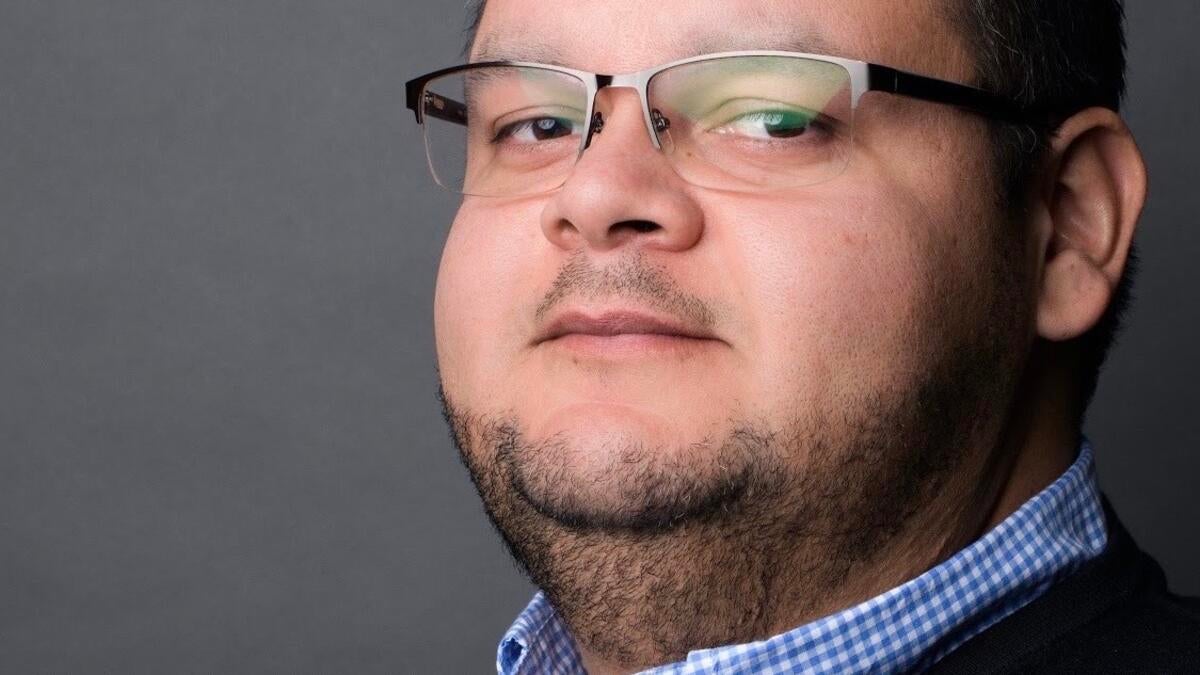ASU professor strives to reduce health disparities in Latino communities, advocates for first-gen students of color

Gilberto Lopez, assistant professor in Arizona State University’s School of Transborder Studies.
Why do certain groups of people have a shorter life span? How can health disparities among poor and racialized minorities be reduced? Why are Latino communities disproportionately burdened by COVID-19? These are just a few of the questions Gilberto Lopez, a new assistant professor in Arizona State University’s School of Transborder Studies, strives to answer in his work.
Lopez takes a mixed-method approach in his research that combines his social science background and public health expertise to gain a more holistic understanding of various public health issues in minority communities.
When the COVID-19 pandemic first swept the United States, Lopez became increasingly interested in understanding the immediate and long-term effects the virus would have on the economic and psychosocial well-being of Latino populations in Arizona and California. Through his research he found that due to a number of factors Latinos are at a higher risk of contracting COVID-19.
In an effort to address one aspect of this issue, Lopez partnered with Creative Frontiers, an agency focused on creating behavior-change messaging, storytelling and health education, to develop the COVID Health Animation Project. The project features a series of animations on COVID-19 misinformation in different cultural contexts that are shared on social media through a number of health organizations and nonprofits.
Since the videos launched in April, the first three videos in the series have reached over 1.5 million people. Lopez is currently in the process of collecting data on the benefits and impacts of the animated videos.
Video courtesy of CHAP
Lopez has also partnered with the University of California, Merced’s Nicotine and Cannabis Policy Center to conduct in-depth interviews with Latinos in California’s agricultural Central Valley to better understand beliefs, attitudes and behaviors around COVID-19. With the results from these surveys, he hopes to quantify the aspects of the coronavirus that are misunderstood among this population and counter misinformation by developing additional animations and other resources in a culturally tailored way. He is currently in the process of collaborating with ASU’s College of Health Solutions to bring this study to Arizona.
His other work focuses on social determinants and disparities in cancer, mental health and the health inequities of rural immigrant populations.
Lopez said his motivation to do this work stems from his personal experiences growing up in rural California. As a son of Mexican immigrants who were farmworkers, he noticed a division in his community early on that led him to pursue higher education and better understand why different groups of people experience life in vastly different ways.
“My community was very divided into two groups — those who work the land and those who own the land,” Lopez said. “School allowed me to more systematically and theoretically understand these things. I started realizing that what we had always assumed was normal, like the high incidents of obesity, cardiovascular disease and cancer, wasn’t actually normal and not everybody lives like that. As I learned the language and concepts, and how to ask questions through lenses of anthropology, philosophy, sociology and public health, I developed a tool kit on how to systematically ask these questions.”
For years, Lopez explored issues like these at universities around the country but said as a faculty member of color he was drawn to ASU because of the diversity among faculty and students.
“The School of Transborder Studies just feels like home. For a first-gen faculty of color, who you work with is very important. Working with people who have your same history, same background and who look like you and speak the same language, not even just literally, but the concepts, the ideas we have about what it is to be an academic, really just feels like a home.”
Lopez received a doctorate degree in social and behavioral sciences from the Harvard T.H. Chan School of Public Health, a master’s degree in public health from Johns Hopkins Bloomberg School of Public Health, a master’s degree in medical anthropology from Southern Methodist University and a bachelor’s degree in anthropology and Chicano studies from California State University, Fresno.
Throughout his higher education experiences, Lopez said he found faculty who encouraged him. He hopes to do the same and serve as a mentor to first-generation students like himself.
“On my academic journey I was lucky enough to have mentors who took the time to understand and help. If it wasn't for them, I would not have gone to graduate school,” he said. “My door is always open. If there's anything I can do to help any student, first-gen or not, whether it's looking at graduate school programs, trying to decide on their major — anything I can do, I'm available.”
More Health and medicine

New study seeks to combat national kidney shortage, improve availability for organ transplants
Chronic kidney disease affects one in seven adults in the United States. For two in 1,000 Americans, this disease will…

New initiative aims to make nursing degrees more accessible
Isabella Koklys is graduating in December, so she won’t be one of the students using the Edson College of Nursing and Health…

Reducing waste in medical settings
Health care saves lives, but at what cost? Current health care practices might be creating a large carbon footprint,…

